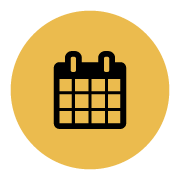Insects are among the most interesting and adaptable creatures on planet Earth. Making an insect collection is the best way to get to know the insects. Join entomologist, Jim Young in this hands-on, two-part entomology seminar to learn the various techniques used to catch, preserve and mount insects. For more information about collecting insects, CLICK HERE.
PART I – Collecting in the Field
Saturday – August 3 (rain date = August 4)
9AM – 12PM
Location TBD
PART II – Preservation and Pinning
Sunday – August 4 (rain date = August 18)
12:30PM – 3:30PM
Location: Natural History Society
REGISTER HERE: https://marylandnature.wildapricot.org/event-3456397
$80 NHSM Members
$100 Non-Members
Registration includes supplies needed to begin a personal collection.
PROVIDED MATERIALS
•Pinning needles
•Spreading boards
•Specimens (although highly encourage you to bring some your own)
•Labels
NEED TO BRING
•Needle nose tweezers
•Box to store collections (can be as simple as a small cardboard box!)
* Note: This workshop requires fine motor skills and we will be working with sharp pins and real deceased insect specimens. This workshop is not advised for very young children. We recommend children 12 years or older who can remain focused during a 3 hour workshop session.
Instructor: James D. Young, PhD
Dr. Young earned his B.S. from SUNY College of Environmental Science in 2002 and completed his Ph.D. in Entomology from the University of Georgia in 2006. After graduating he was hired by Oregon State University to run the Insect ID Clinic and teach classes in Entomology In late 2009 he accepted a position with USDA and is currently a National Specialist in Lepidoptera and is located at the U.S. National Museum.
Continuing education courses provide a unique opportunity to learn natural science from experts. Taught at an introductory college level, they are open to anyone seeking an introduction to various areas of the sciences as well as those familiar with the subjects who wish to broaden and update their knowledge. The courses also provide an excellent opportunity for motivated junior high and high school students to supplement their current science courses and to help prepare them for further study in these fields at a college level. The courses are appropriate as well for teachers seeking to expand their knowledge.
The Natural History Society of Maryland is a volunteer-led non-profit organization, so the fee you pay will go directly to support the programs, the nature collections, and the building that make this kind of nature education possible.
Thank you for your support!
